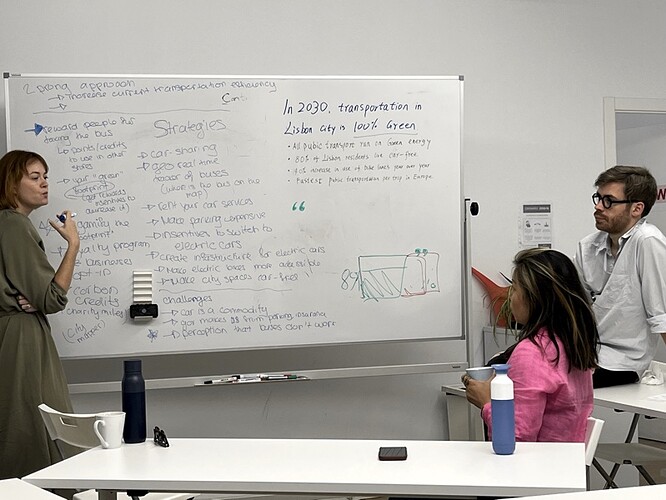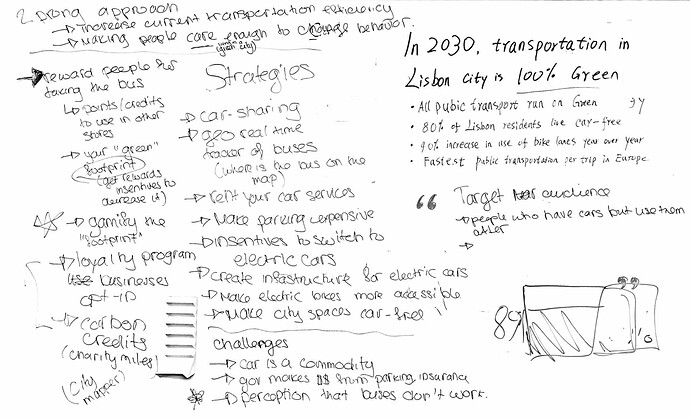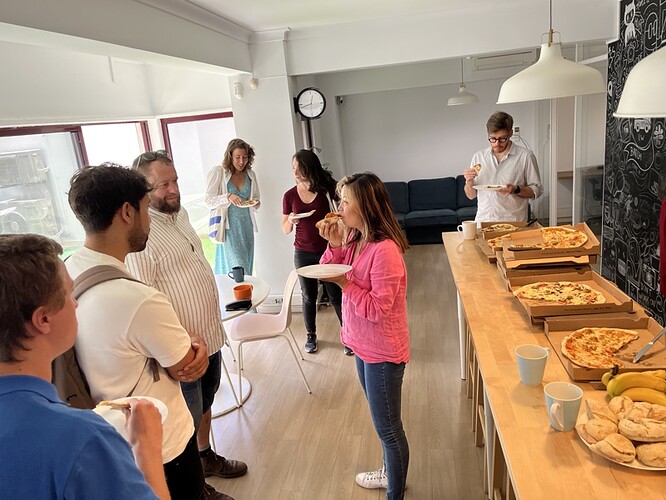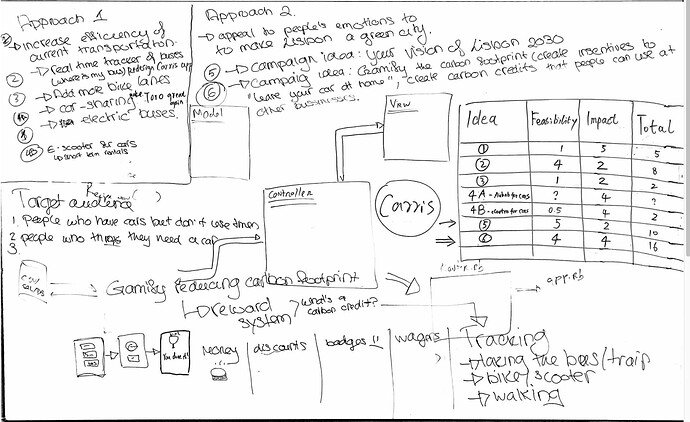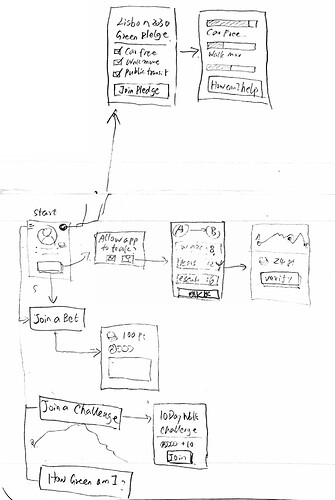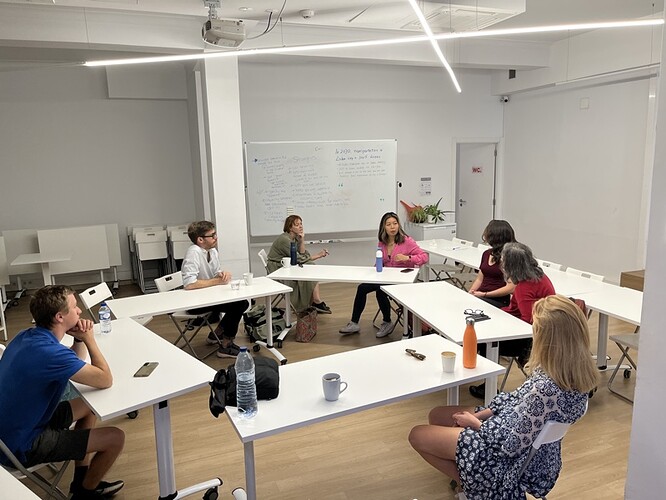Here’s a recap post of what all we did at the hackathon on Saturday. This is hopefully useful for summarizing the experience for those who are thinking of attending the next one as well as extracting our key learnings, outputs and giving those of us who attended a clear summary and next steps for how we take the project forward.
The event took place at Le Wagon in Lisbon which is a coding academy bootcamp who graciously hosts us our Saturday hackathon events. We are grateful for their sponsorship. If you’re considering learning to code check out their free webinars to get a flavor for their programs.
We got started at 10:30am with eight volunteers and began by opening the floor for proposals of which problem we actually work on. We began this conversation at the dinner on Wednesday where we were able to zoom with two previous podcast guests and one future one talking about their respective issues of wealth inequality, cancer industrial complex and privatized prisons. The group ended up deciding it wanted to work on a new, entirely-unrelated problem of sustainability, specifically focusing on what we could do to help Lisbon become a more green city. We took to the whiteboard to start mapping out a plan.
We used the Amazon Working Backwards methodology of starting by writing an aspirational press release that we would ideally like to run following the launch of whatever we build and came up with the headline and bulletpoints you see on the right side of the board.
And then backed our way into strategies for how to possibly make that happen (moving left on the whiteboard).
By this point it was lunchtime and our two mentors had joined us, Richard from GetRegistered and Maitham from Vital. We headed upstairs for pizza courtesy of Pagely, our lunch sponsor. Worth noting that Pagely also fed us at the Wednesday night dinner and we are grateful for their support. If you have a high-traffic or high-criticality WordPress site that absolutely cannot go down and you want to outsource maintenance, security, speed optimization, etc to someone else, consider hosting with Pagely.
After lunch we reconvened and deliberated on what of all the things we could build would best meet the criteria of feasibility and impact on the problem. We came up with a scoring method and went through as a group and scored each idea. We ultimately came up with this:
(Ignore the ER database diagram in the middle of the board - it was an artifact written in permanent marker that we couldn’t figure how to erase hahahah).
We settled upon option #6 which was the idea that we could make an app to gamify activities which would reduce one’s carbon footprint.
How to actually make that happen became the next question.
We started ideating about how to best create behavioral change for Lisbon residents and came up with a simple mobile app that would be a self-test one could take to determine “How green am I?” We thought about a questionairre but more interesting was the idea of “is there some objective measure that wouldn’t involve survey bias and allow us to easily extract a score on someone?” We determined that we could ingest data from one’s Google Maps Timeline and use that to determine portion of total travel via walking, cycling, bus and car and then from that develop a scorecard that would give people a clear breakdown of their transportation habits and opportunity to make slight shifts in the right direction by replacing their commutes and activities with greener transportation methods.
At this point someone came up with the name “Greenr” for the project and it stuck.
Lucia began drafting a low-fidelity concept for what the web app might look like:
The idea was to compete against yourself monthly but then also layer in the ability to challenge friends to get a network effect of spreading it. Ideas blossomed around incentivizing with credits earned similar to how apps like Charity Miles reward their users. But we agreed to remain focused on delivering the simplest version of this app.
At this point we had hit our time limit and spent the remaining few minutes talking about the best way forward. The group decided that it wanted a collaboration/communication tool like Slack to keep working on things.
I’ve since setup Discord instead of Slack for our group. After doing a side-by-side comparison of both Discord appears like a better choice. The two tools are nearly identical in terms of capabilities only Slack seemingly has a bent towards companies whereas Discord is tailored more for communities. Given the nature of this whole effort, Discord feels like the right choice. It also has no message limits imposed whereas Slack caps everything at 10k total messages before requiring the entity to pay for all members. We’re a long way from hitting the 10k message limit but I would prefer to not paint ourselves in a corner with a tool that we’ll grow out of.
At any rate we now have a clear direction for next time. I’m hoping we also get enough participants on the next one where some of us can work on the anti-human trafficking browser extension project we started at the previous one.
Thanks to all who participated. Join the Discord here. See you next time.
